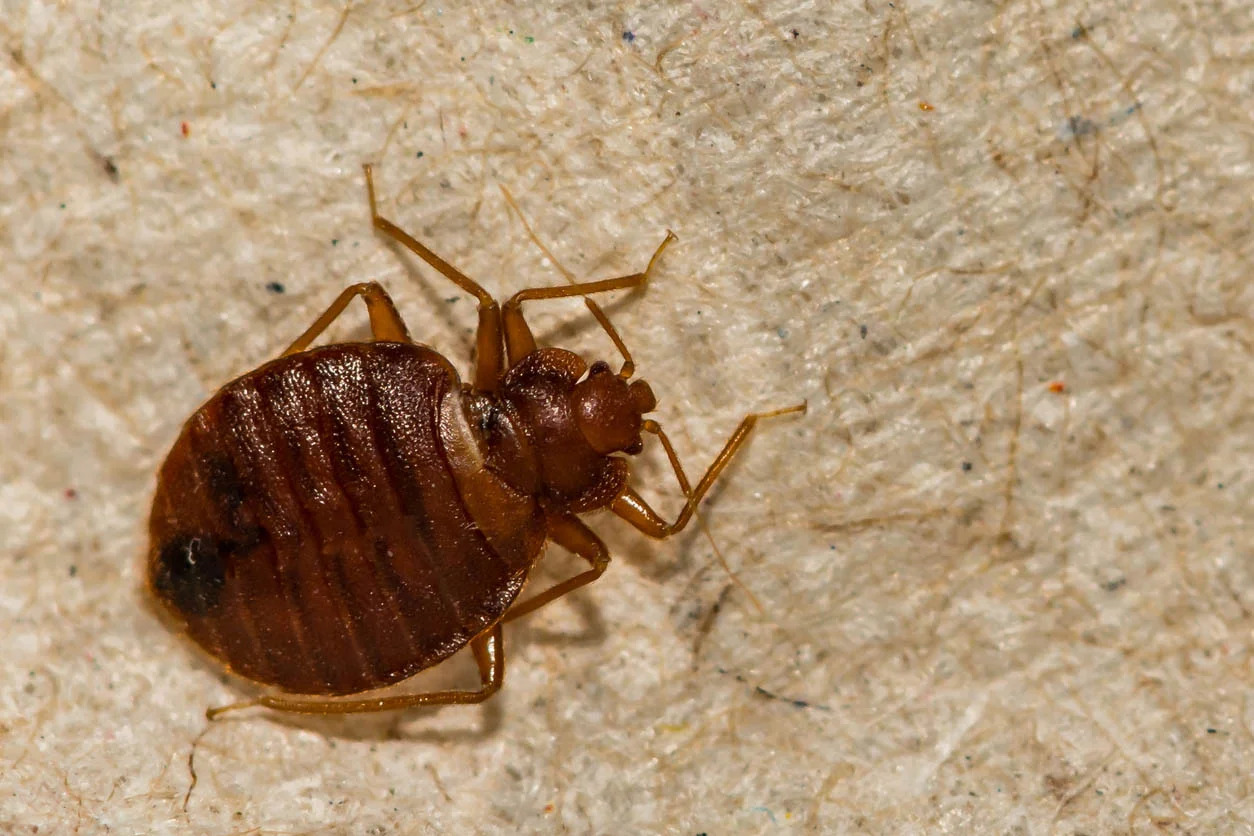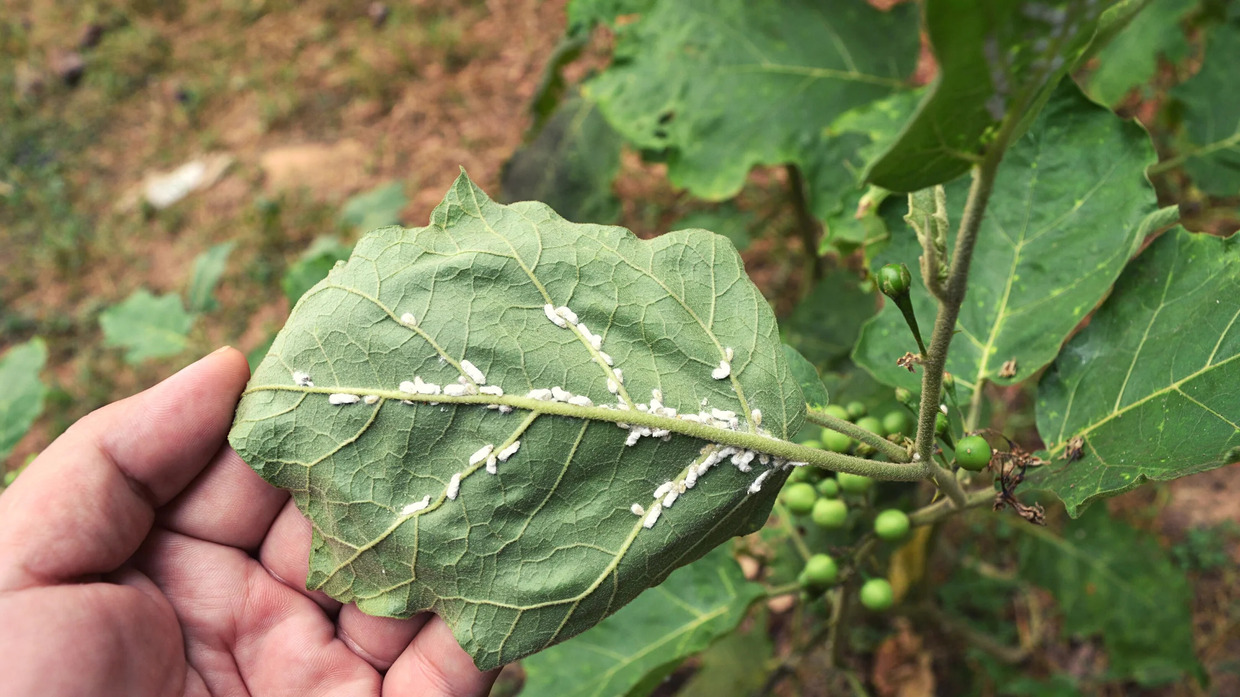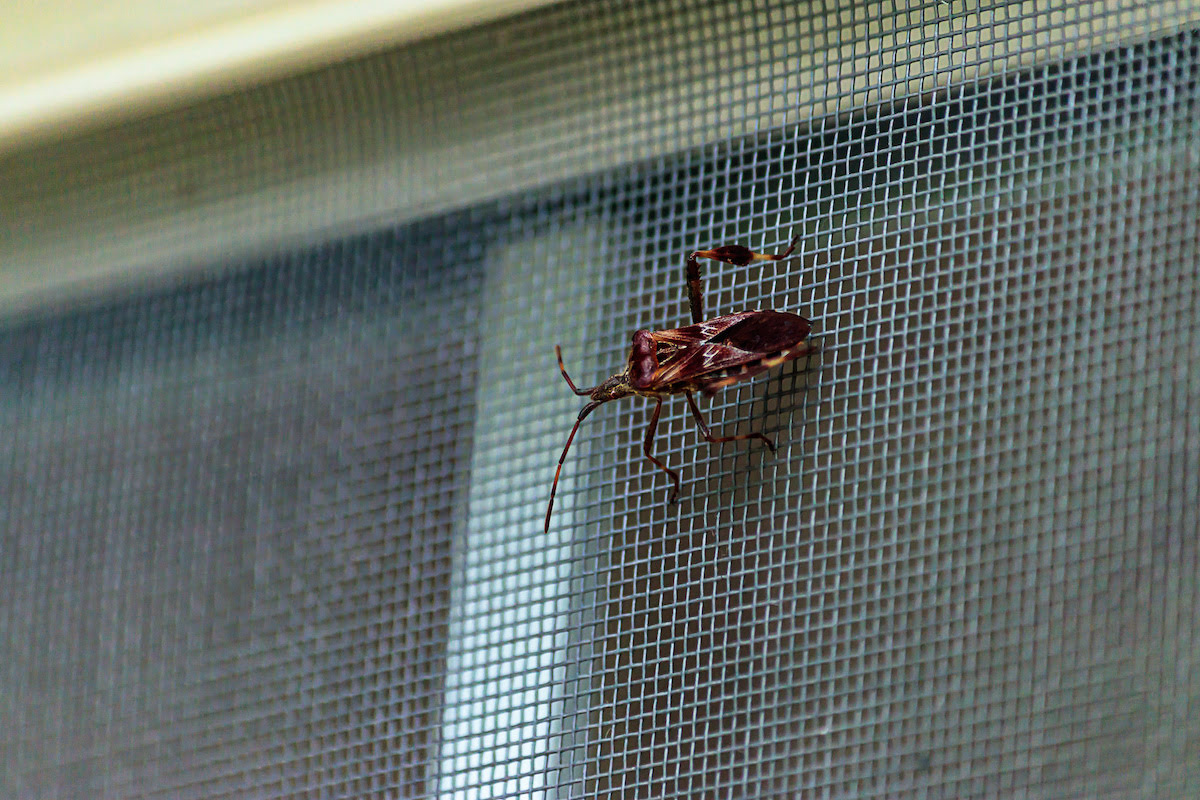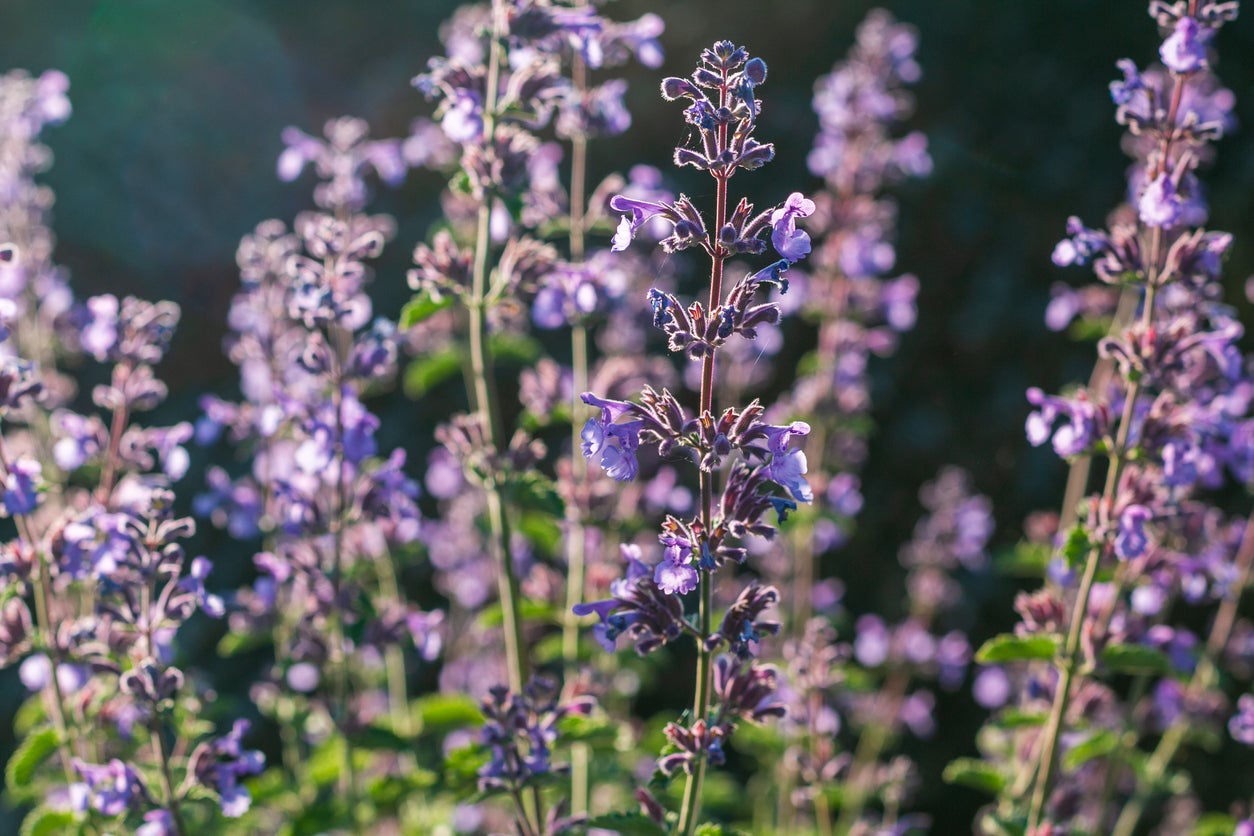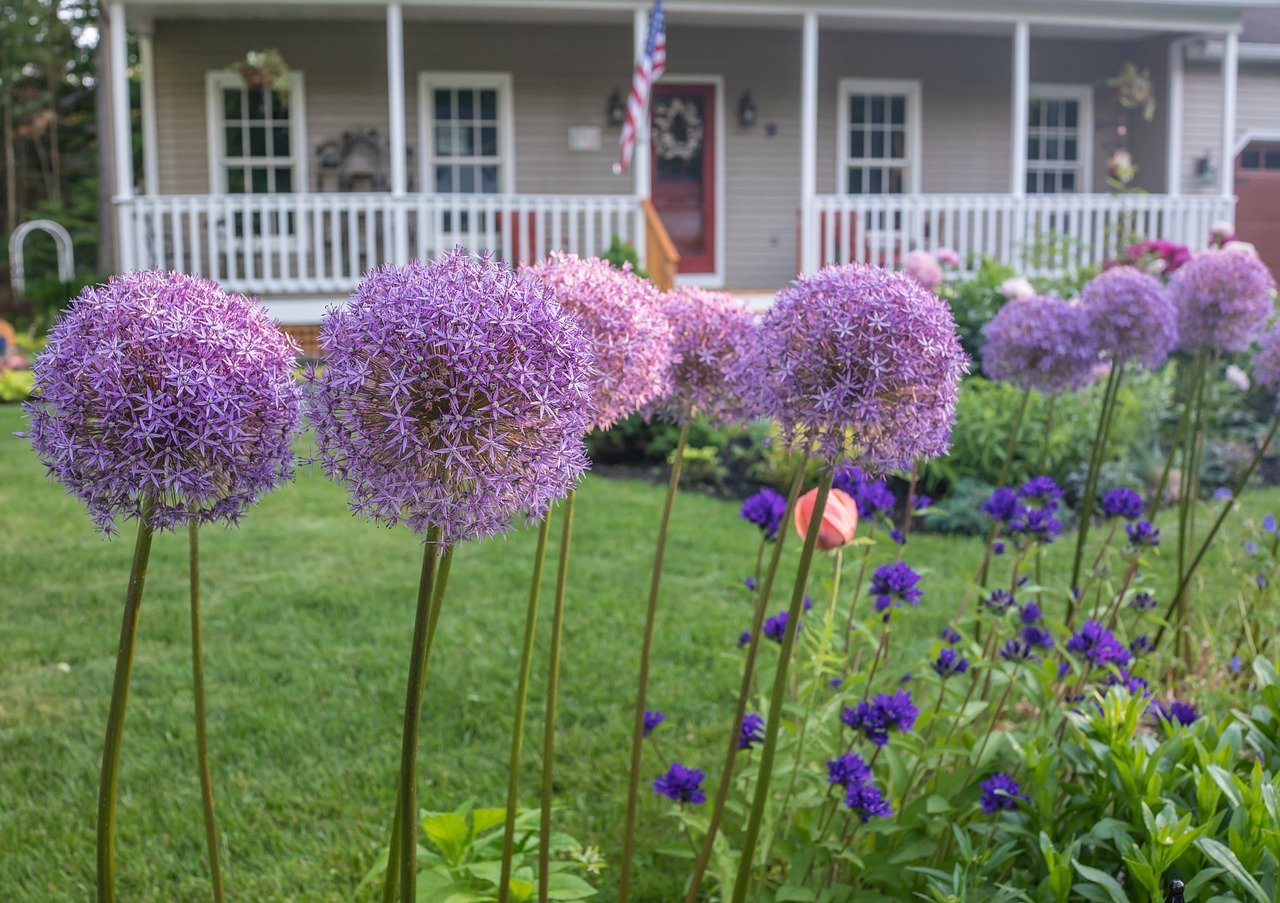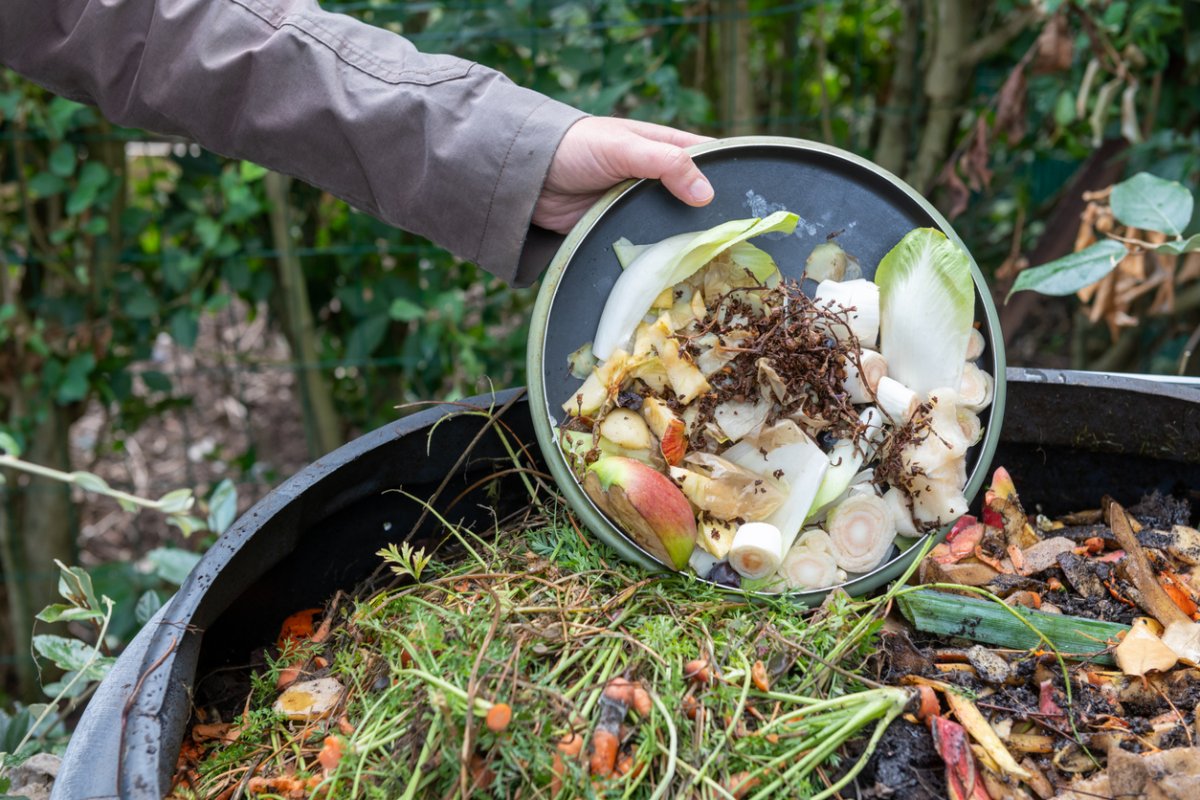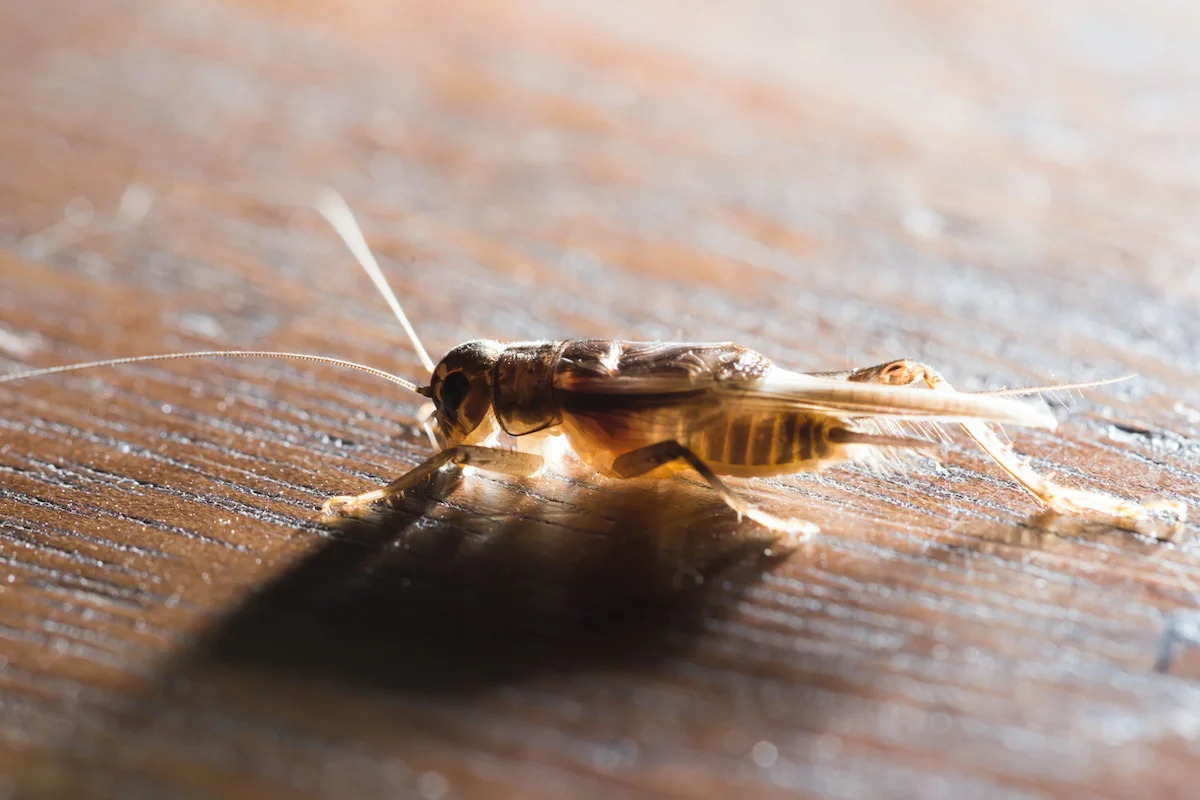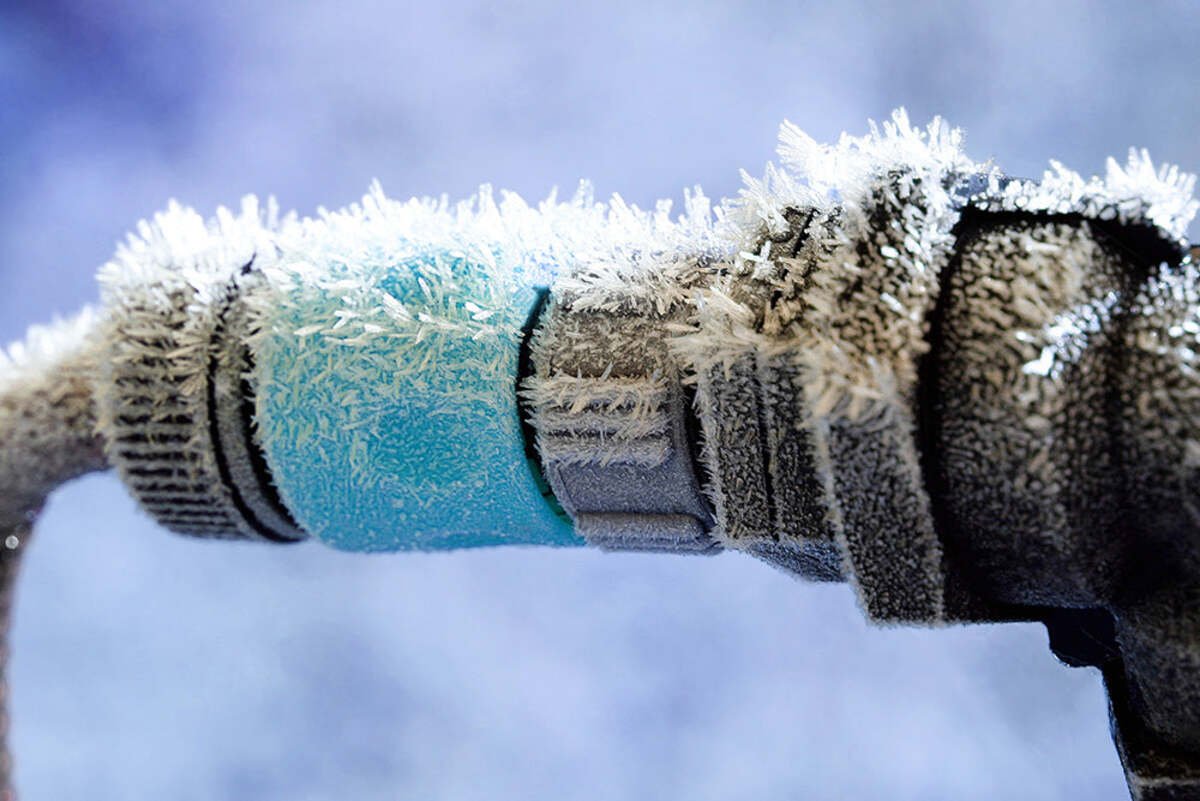Home>Gardening News and Trends>Latest News>How To Keep Insects Away From House
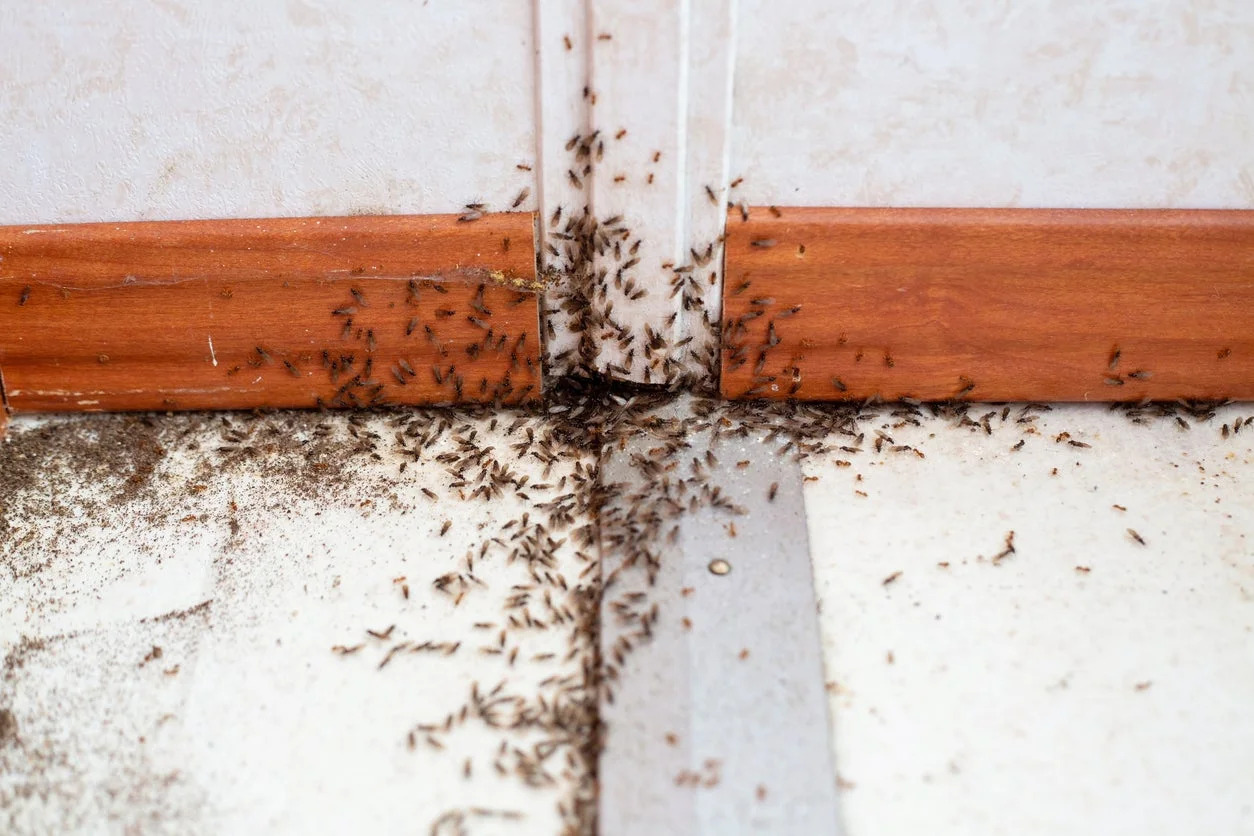

Latest News
How To Keep Insects Away From House
Modified: January 22, 2024
Learn the latest news on how to keep insects away from your house with our expert tips. Keep your home bug-free and enjoyable for everyone.
(Many of the links in this article redirect to a specific reviewed product. Your purchase of these products through affiliate links helps to generate commission for Chicagolandgardening.com, at no extra cost. Learn more)
Table of Contents
- Introduction
- Understanding the Behavior of Insects
- Natural Methods to Repel Insects
- Essential Oils for Insect Prevention
- Creating a Pest-Resistant Environment
- Using Screens and Nets as a Barrier
- Proper Waste Management to Prevent Insect Infestation
- Maintaining a Clean Home and Garden
- Applying Insecticides Safely and Effectively
- Conclusion
Introduction
Welcome to our comprehensive guide on how to keep insects away from your house. Dealing with insects can be a frustrating and challenging task, but with the right knowledge and strategies, you can create a pest-free environment in and around your home. Insects not only pose a nuisance, but they can also transmit diseases and cause damage to your property.
Understanding the behavior of insects is crucial in effectively warding them off. By knowing their habits and preferences, you can implement natural and preventive measures to deter them from invading your living space. In this guide, we will explore various methods to repel insects, including the use of essential oils, creating a pest-resistant environment, utilizing screens and nets, proper waste management, and maintaining a clean home and garden.
In addition, we will provide insights on how to apply insecticides safely and effectively when necessary. It’s important to note that while insecticides can be a powerful tool, they should be used as a last resort and with caution.
Whether you’re dealing with mosquitoes, ants, flies, or any other common household insects, this guide is here to help you take proactive steps towards keeping them out of your house. By implementing these strategies, you can enjoy a bug-free and comfortable living environment for you and your family.
So, let’s dive in and discover the best practices in insect prevention and create a home that is inhospitable to these pesky creatures.
Understanding the Behavior of Insects
Before we can effectively keep insects away from our homes, it’s vital to understand their behavior. Insects are attracted to various environmental factors that fulfill their basic needs for survival, such as food, water, and shelter.
Insects have a highly developed sense of smell and use it to locate sources of food. They can detect even the tiniest traces of sugar, protein, or other tempting food sources. Additionally, stagnant water, warm and humid areas, and cluttered spaces serve as ideal breeding grounds for insects like mosquitoes and flies.
Understanding these preferences helps us target the areas where insects are most likely to congregate. By eliminating or minimizing these attractants, we can significantly reduce the presence of insects and discourage them from entering our homes.
It’s also important to note that different insects have different behaviors. For example, mosquitoes are most active during dusk and dawn and are drawn to areas with standing water. Flies are attracted to decaying organic matter, while ants are especially drawn to sugary substances.
By learning about the behaviors of specific insects, we can tailor our prevention methods accordingly. For instance, to combat mosquitoes, we should focus on removing any sources of stagnant water, while keeping food securely stored is crucial for deterring ants.
Overall, understanding the behavior of insects allows us to identify their motivations and implement effective strategies to repel them. This knowledge serves as the foundation for creating a pest-resistant environment in and around our homes.
Natural Methods to Repel Insects
When it comes to keeping insects away from our homes, natural methods can be safe, effective, and environmentally friendly alternatives to chemical pesticides. These methods not only help repel insects but also minimize the risk of exposure to harmful chemicals for you and your family.
One of the most popular natural insect repellents is citronella oil. Derived from a type of grass, citronella oil emits a strong scent that masks the odors that attract insects. You can use citronella candles or torches in your outdoor spaces to create a bug-free zone.
Another effective natural insect repellent is neem oil. It is derived from the neem tree and has been used for centuries as a pest control remedy. Neem oil acts as a deterrent, disrupting the life cycle of insects and inhibiting their feeding and reproductive abilities.
Peppermint and eucalyptus oil are also well-known insect repellents. Their strong fragrances help repel mosquitoes, ants, and flies. Dilute a few drops of these essential oils in water and use them as a spray around windows, doors, and outdoor areas.
Garlic is not only a staple in the kitchen but also a natural insect repellent. Crush a few garlic cloves and soak them in water for a few hours. Strain the liquid and use it as a spray to repel mosquitoes and other insects.
Vinegar, specifically apple cider vinegar, is another natural insect deterrent. Its strong acidic scent acts as a repellent and can be used to deter ants, flies, and fruit flies. Simply mix equal parts of vinegar and water in a spray bottle and use it in areas prone to insect activity.
In addition to these specific natural remedies, there are several gardening techniques that can help repel insects. Planting insect-repelling herbs like basil, lavender, and rosemary around your garden can discourage insects from taking up residence. Marigolds are also known for their pest-repellent properties.
Creating a diverse ecosystem in your garden can attract beneficial insects like ladybugs, lacewings, and praying mantises. These insects are natural predators of many common garden pests and can help keep their populations in check.
By utilizing these natural methods, you can effectively repel insects and create a safe and inviting environment for you and your family without relying on harmful chemicals.
Essential Oils for Insect Prevention
Essential oils have gained popularity as natural remedies for various ailments, and they can also be used to repel insects effectively. These oils contain potent compounds that insects find unpleasant, deterring them from entering your home or garden.
Lemon eucalyptus oil is one of the most effective essential oils for repelling mosquitoes. It contains a compound called PMD (para-menthane-3,8-diol) that has been found to be as effective as DEET, a common chemical insect repellent. Dilute a few drops of lemon eucalyptus oil in a carrier oil, and apply it to exposed skin to keep mosquitoes at bay.
Lavender oil is not only known for its calming aroma but also for its ability to ward off insects. Its scent is disliked by mosquitoes, flies, and moths. Use lavender oil in a diffuser or place sachets of dried lavender in your closets and drawers to repel insects and enjoy the pleasant fragrance.
Peppermint oil is another powerful essential oil for insect prevention. The strong scent of peppermint is highly effective at repelling ants, spiders, and other insects. Mix a few drops of peppermint oil with water in a spray bottle and use it as a natural insect repellent. Spray it along baseboards, cracks, and entry points to keep insects out.
Tea tree oil, with its antimicrobial and insect-repellent properties, can be used to deter a wide range of insects. Dilute a few drops of tea tree oil in water and use it to wipe down surfaces in your home to repel ants, cockroaches, and other unwanted pests.
Citronella oil is a popular choice for outdoor insect prevention. Its distinct citrus-like scent masks the odors that attract mosquitoes and other insects. You can burn citronella candles or use citronella oil in outdoor torches to create a bug-free environment during your outdoor activities.
When using essential oils, it’s important to note that some oils may cause skin sensitivity or reactions in certain individuals. Always dilute essential oils properly and perform a patch test before applying them to your skin. Additionally, be cautious when using essential oils around pets, as some oils can be toxic to them. Consult with a veterinarian if you have any concerns.
Essential oils offer a natural and pleasant-smelling alternative to chemical insect repellents. By incorporating these oils into your insect prevention routine, you can enjoy a bug-free environment while reaping the benefits of their aroma and therapeutic properties.
Creating a Pest-Resistant Environment
Prevention is key when it comes to keeping insects away from your house. By creating a pest-resistant environment, you can minimize the chances of insects finding their way inside. Here are some effective strategies:
1. Seal Entry Points: Inspect your home for any cracks, gaps, or openings that may serve as entry points for insects. Seal these gaps using caulk or weatherstripping to prevent insects from entering.
2. Install Door Sweeps and Screens: Door sweeps are a simple yet effective way to prevent insects from sneaking in through the gap under your doors. Window screens are also essential to keep out flies, mosquitoes, and other flying insects.
3. Clear Clutter: Insects love cluttered areas as they provide hiding places and potential food sources. Declutter your living space, both indoors and outdoors, to eliminate potential habitats for insects.
4. Keep Food Stored Properly: Store food in airtight containers to prevent insects, such as ants and pantry moths, from accessing it. Clean up spills and crumbs promptly to avoid attracting pests.
5. Remove Standing Water: Stagnant water is a breeding ground for mosquitoes and other water-loving insects. Regularly empty and clean areas with standing water, such as buckets, flower pots, and bird baths.
6. Maintain Landscaping: Trim bushes and trees away from your home, as they can provide a bridge for insects to enter. Keep your lawn well-maintained and remove any debris or leaf piles that may attract insects.
7. Use Yellow Light Bulbs: Insects are attracted to bright lights, especially those with a blue or white tint. Switch to yellow or amber light bulbs for outdoor lighting, which are less attractive to insects.
8. Consider Natural Predators: Introduce beneficial insects or animals to your outdoor space. For example, ladybugs and praying mantises feed on common garden pests, helping to naturally control their populations.
By implementing these strategies, you can create an environment that is unappealing to insects. Taking these proactive measures will significantly reduce the chances of pests making your house their new home.
Using Screens and Nets as a Barrier
One of the most effective ways to keep insects out of your house is by using screens and nets as a physical barrier. Screens and nets are simple but essential tools that can prevent insects from entering through windows, doors, and other openings. Here’s how you can utilize them:
1. Window Screens: Installing screens on your windows is a highly effective way to keep flying insects, such as mosquitoes and flies, out of your home. Make sure that the screens are in good condition, with no tears or holes that insects can squeeze through. Regularly inspect and repair any damaged screens.
2. Door Screens: Similar to window screens, door screens serve as a barrier against insects while allowing fresh air to flow through. Installing a screen door or attaching a screen mesh to your existing door provides an extra layer of protection against crawling and flying insects. Ensure that the screen door closes properly and any gaps are sealed to prevent insects from sneaking in.
3. Magnetic and Velcro Screens: If you want to keep your doors open for ventilation without insects invading your home, consider using magnetic or Velcro screens. These screens attach to the door frame with magnets or Velcro strips, allowing you to easily pass through while keeping insects out. They are particularly useful for patio doors and sliding doors.
4. Bed Nets: If you live in an area with a high population of mosquitoes or other biting insects, using a bed net can provide a peaceful and insect-free sleep. Bed nets create a physical barrier around your bed, preventing insects from reaching you while you sleep. Make sure the netting is securely tucked under the mattress to seal any entry points.
5. Portable Tent and Canopy Nets: For outdoor activities or camping, portable tent and canopy nets can help create a bug-free zone. These nets typically have a fine mesh that keeps insects out while allowing you to enjoy the outdoors without the annoyance of biting and flying insects.
Using screens and nets as a barrier is a simple but effective way to prevent insects from entering your home or outdoor space. They provide a physical barrier that keeps insects out while allowing fresh air and natural light to come in. By properly maintaining and using screens and nets, you can enjoy a pest-free environment while still enjoying the benefits of the great outdoors.
Proper Waste Management to Prevent Insect Infestation
Proper waste management is essential in preventing insect infestation in and around your home. Insects are attracted to food sources, and improper waste disposal can create an environment that is highly appealing to them. By implementing effective waste management practices, you can minimize the chances of insects infiltrating your living space. Here’s how:
1. Secure Trash Bins: Use tightly sealed trash bins with lids to prevent insects, such as flies and ants, from accessing and feeding on your garbage. Make sure the lids are always closed, and consider using bins with locking mechanisms for added security.
2. Regularly Empty Trash Bins: Don’t let trash sit for an extended period. Regularly empty the trash bins, both indoors and outdoors, to prevent them from becoming a breeding ground for insects. Dispose of the waste in sealed bags and take it to the designated collection area promptly.
3. Clean Trash Bins: Even with tightly sealed lids, trash bins can accumulate residue and unpleasant odors that attract insects. Clean your trash bins regularly with soap and water or a disinfectant to remove any leftover food particles and discourage insect infestation.
4. Compost Properly: If you have a compost pile or bin, it’s essential to manage it correctly to prevent insect problems. Avoid composting meat, dairy products, or oily and greasy foods that can attract pests. Turn the compost regularly to facilitate proper decomposition and discourage insects from taking up residence.
5. Keep Outdoor Areas Clean: Inspect your outdoor areas regularly and remove any debris, fallen fruits, or decaying organic matter. These can be breeding grounds for insects like flies and beetles. Rake leaves, trim overgrown vegetation, and maintain a tidy yard to discourage insects from finding shelter and food sources.
6. Properly Store Pet Foods: If you have pets, make sure to store their food in tightly sealed containers. Insects are attracted to pet food, so keeping it properly stored minimizes the chances of infestation. Clean up any spilled food promptly to avoid attracting pests.
7. Educate Household Members: Teach your family members about the importance of proper waste management and their role in preventing insect infestation. Encourage everyone to dispose of waste correctly and contribute to keeping the living spaces clean and free from attractive food sources for insects.
By adopting proper waste management practices, you can significantly reduce the chances of insect infestation in and around your home. Not only does this enhance the cleanliness and hygiene of your living environment, but it also creates an inhospitable environment for insects, leading to a pest-free home.
Maintaining a Clean Home and Garden
Maintaining a clean home and garden is crucial in preventing insect infestation. Insects are attracted to dirt, food remnants, and clutter, which provide them with ideal conditions for nesting and feeding. By keeping your living spaces clean and well-maintained, you can create an environment that is less appealing to insects. Here are some tips to help you maintain a clean home and garden:
1. Regular Cleaning: Regularly clean your home, paying special attention to areas where insects are commonly found, such as the kitchen and bathroom. Sweep, vacuum, and mop the floors to remove dirt, crumbs, and other debris that can attract insects.
2. Kitchen Maintenance: Clean up spills and crumbs immediately, as they can attract ants, cockroaches, and other pests. Wipe down countertops, stovetops, and kitchen appliances regularly to remove any food residues. Store food in airtight containers to prevent insects from accessing it.
3. Properly Store Garments and Fabrics: Insects like moths are notorious for damaging fabrics. Store clothing, linens, and other fabrics in sealed bags or containers, especially during the warmer months when moth activity increases.
4. Maintain Proper Drainage: Ensure that your home’s plumbing and drainage systems are in good condition. Fix any leaks or clogged drains as soon as possible, as standing water can attract insects like mosquitoes and drain flies.
5. Trim Plants and Remove Debris: In your garden, keep plants well-trimmed and remove any dead leaves or plant debris. This prevents insects from finding shelter and breeding grounds. Regularly prune shrubs and trees away from structures to prevent easy access for crawling insects.
6. Regularly Inspect and Maintain Your Garden: Look out for signs of pest infestation in your garden, such as chewed leaves or damaged plants. Remove any infested or diseased plants promptly to prevent the problem from spreading. Consider using natural pest control methods, like introducing beneficial insects or using homemade insecticidal sprays, to control pest populations.
7. Eliminate Standing Water: Empty and clean any water-holding containers in your garden, such as birdbaths or buckets. Mosquitoes can breed in even the smallest amount of standing water. By eliminating these breeding sites, you reduce the likelihood of a mosquito infestation.
By maintaining a clean and well-kept home and garden, you create an environment that is less attractive to pests. Insects thrive in areas that offer them food, shelter, and breeding opportunities. With proper cleanliness and regular maintenance, you can significantly reduce the chances of insect infestation and enjoy a pest-free home and garden.
Applying Insecticides Safely and Effectively
While natural methods and prevention techniques are often the preferred way to keep insects away, there may be situations where the use of insecticides becomes necessary. Insecticides can effectively target and eliminate pests when used safely and properly. Here are some guidelines for applying insecticides safely and effectively:
1. Read and Follow Instructions: Always carefully read and follow the instructions provided on the insecticide label. Pay attention to application rates, safety precautions, and any specific handling or storage instructions.
2. Choose the Right Insecticide: Different insecticides are formulated to target specific pests. Identify the specific insect you are dealing with and choose an insecticide that is effective against that particular pest. This ensures that you are using the appropriate product for your specific needs.
3. Wear Protective Clothing: When applying insecticides, it’s important to protect yourself by wearing appropriate clothing. This typically includes long sleeves, long pants, gloves, closed-toe shoes, and a face mask. Follow the specific recommendations provided on the insecticide label.
4. Apply in Ideal Conditions: Apply insecticides when weather conditions are optimal. Avoid applying insecticides on windy days to prevent the product from drifting and affecting unintended areas or individuals. Additionally, avoid applying insecticides during periods of rain, as it can wash away the product before it has a chance to be effective.
5. Targeted Application: Apply insecticides directly to the areas where pests are present or likely to be found. Avoid applying insecticides to areas where you, your children, or pets frequent. Focus on cracks, crevices, baseboards, and other targeted areas where insects are likely to hide or travel.
6. Use the Right Equipment: Make sure you have the proper equipment for applying the insecticide. This may include sprayers, dusters, or bait stations. Follow the manufacturer’s instructions for the correct application method and use the equipment accordingly.
7. Store Properly: After use, store insecticides in their original containers and keep them out of reach of children and pets. Follow the instructions on the label for proper storage conditions and disposal of any unused product, empty containers, or packaging materials.
8. Consider Professional Help: In certain situations, such as large infestations or potential health risks, it may be best to seek professional help. Pest control professionals have the expertise and knowledge to safely and effectively apply insecticides to control pests while minimizing risks to you and the environment.
Remember, the use of insecticides should be a last resort and considered when all other prevention methods have been exhausted. By following these guidelines, you can ensure the safe and effective use of insecticides while minimizing risks to yourself, your family, and the environment.
Conclusion
Keeping insects away from your house requires a combination of understanding their behavior, implementing natural prevention methods, and maintaining a clean and pest-resistant environment. By following the tips and strategies outlined in this guide, you can significantly reduce the presence of insects in and around your home.
Understanding the behavior of insects allows you to target their preferences and implement effective prevention methods. Natural methods, such as using essential oils and creating a pest-resistant environment, provide safe and environmentally-friendly alternatives to chemical pesticides.
Proper waste management, including securely storing trash and eliminating standing water, prevents insects from finding food sources and breeding grounds. Regularly cleaning your home and garden, while properly maintaining them, discourages insects from taking up residence.
When necessary, the use of insecticides should be approached with caution and following the instructions provided on the label. Applying insecticides safely and effectively requires wearing protective clothing, choosing the right product for the specific pest, and targeting the application to affected areas.
Remember, prevention is key to long-term insect control. By being proactive and implementing these strategies, you can maintain a bug-free and comfortable living environment for you and your family.
So put these tips into practice, and enjoy a home that is free from pesky insects and buzzing pests!
